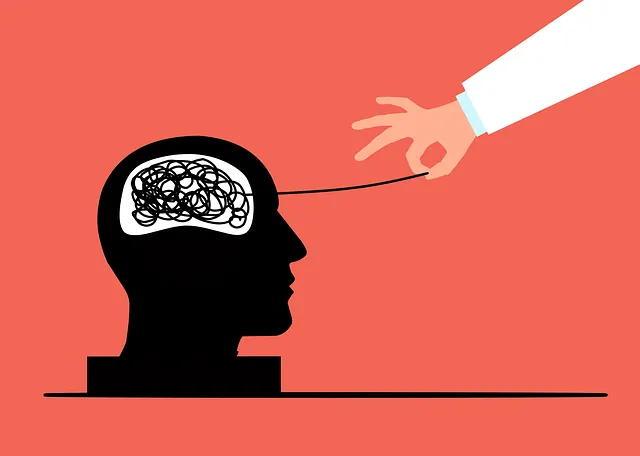Media portrayal significantly shapes public perceptions of mental health, with positive and accurate depictions reducing stigma and promoting understanding. Initiatives like the Denver Kaiser mental health programs exemplify this through diverse narratives emphasizing recovery, self-awareness, and seeking professional support. Kaiser's strategies include training healthcare providers in cultural competency, developing self-care routines, and conducting self-awareness exercises, breaking stereotypes and fostering empathy for those with mental health conditions. Media can leverage its power positively by encouraging inner strength development, creating mental wellness podcast series, and implementing evidence-based communication strategies that emphasize accuracy, diversity, and the spectrum of mental wellness.
In an era where media plays a pivotal role in shaping public perception, accurate representation of mental illness is more crucial than ever. This article delves into the profound impact of media portrayal on mental health stigma and offers solutions to challenge these narratives. We explore Denver Kaiser’s innovative approach to promoting inclusive mental health representation and present implementable strategies for media outlets to enhance their role in advocacy. By fostering accurate understanding, we aim to revolutionize how society perceives and supports individuals facing mental health challenges.
- Understanding the Impact of Media Portrayal on Mental Health Perception
- Denver Kaiser's Approach to Promoting Accurate Mental Illness Representation
- Implementable Strategies for Enhancing Media's Role in Mental Health Advocacy
Understanding the Impact of Media Portrayal on Mental Health Perception

Media portrayal plays a significant role in shaping public perceptions about mental health. The way mental illnesses are depicted in movies, television shows, and news articles can influence how individuals understand and respond to these conditions. Positive and accurate representation in media can foster self-awareness exercises, promote understanding, and reduce the stigma associated with seeking help for mental health issues. Conversely, negative or stereotypical portrayals can perpetuate misconceptions, leading to increased anxiety and barriers to treatment.
For instance, programs like Denver Kaiser’s mental health initiatives emphasize the importance of normalizing conversations around mental wellness. By presenting diverse characters grappling with various mental health challenges and showcasing their journeys towards recovery, media can encourage viewers to embrace self-awareness exercises and stress management techniques. Adopting mind over matter principles, these narratives can inspire individuals to take charge of their mental well-being and seek professional support when needed.
Denver Kaiser's Approach to Promoting Accurate Mental Illness Representation

Denver Kaiser, a renowned advocate for mental health awareness, has pioneered an innovative approach to promoting accurate representation of mental illness in media. His strategy focuses on three key pillars: healthcare provider cultural competency training, self-care routine development for better mental health, and self-awareness exercises. By empowering healthcare professionals with the knowledge to understand and communicate nuanced aspects of mental illness, Kaiser ensures that media portrayals reflect reality. Additionally, his programs emphasize the importance of self-care and self-awareness, encouraging individuals to take proactive steps towards maintaining their mental well-being. This holistic approach not only challenges stereotypes but also fosters a more empathetic and informed society, ultimately leading to better support for those living with mental health conditions.
Implementable Strategies for Enhancing Media's Role in Mental Health Advocacy

Media has a powerful influence over societal perceptions, and this is especially true when it comes to mental health. To enhance media’s role in advocating for better mental health understanding, several strategies can be implemented. One such approach is encouraging Inner Strength Development through compelling narratives that showcase individuals successfully navigating their mental health journeys. This can inspire hope and reduce stigma. Additionally, producing Mental Wellness Podcast Series Production allows for open conversations, sharing experiences, and providing valuable information on various mental health topics.
By integrating evidence-based practices and expert insights, media platforms can contribute to the development of effective Communication Strategies. These strategies should focus on accurate representation, diverse voices, and promoting mental wellness as a spectrum rather than binary categories. For instance, initiatives like the Denver Kaiser mental health programs highlight successful collaborations between media and healthcare professionals, fostering informed discussions and accessible resources for those seeking support.
In conclusion, media plays a pivotal role in shaping societal perceptions of mental health. The article has explored how inaccurate representations can negatively impact individuals struggling with mental illness and highlighted innovative solutions like Denver Kaiser’s approach to promote accurate mental health portrayal. By implementing the discussed strategies, media outlets can actively contribute to mental health advocacy, fostering understanding and reducing stigma through informed storytelling. Denver Kaiser’s mental health programs serve as a blueprint for harnessing media power to create positive change in public perception.






